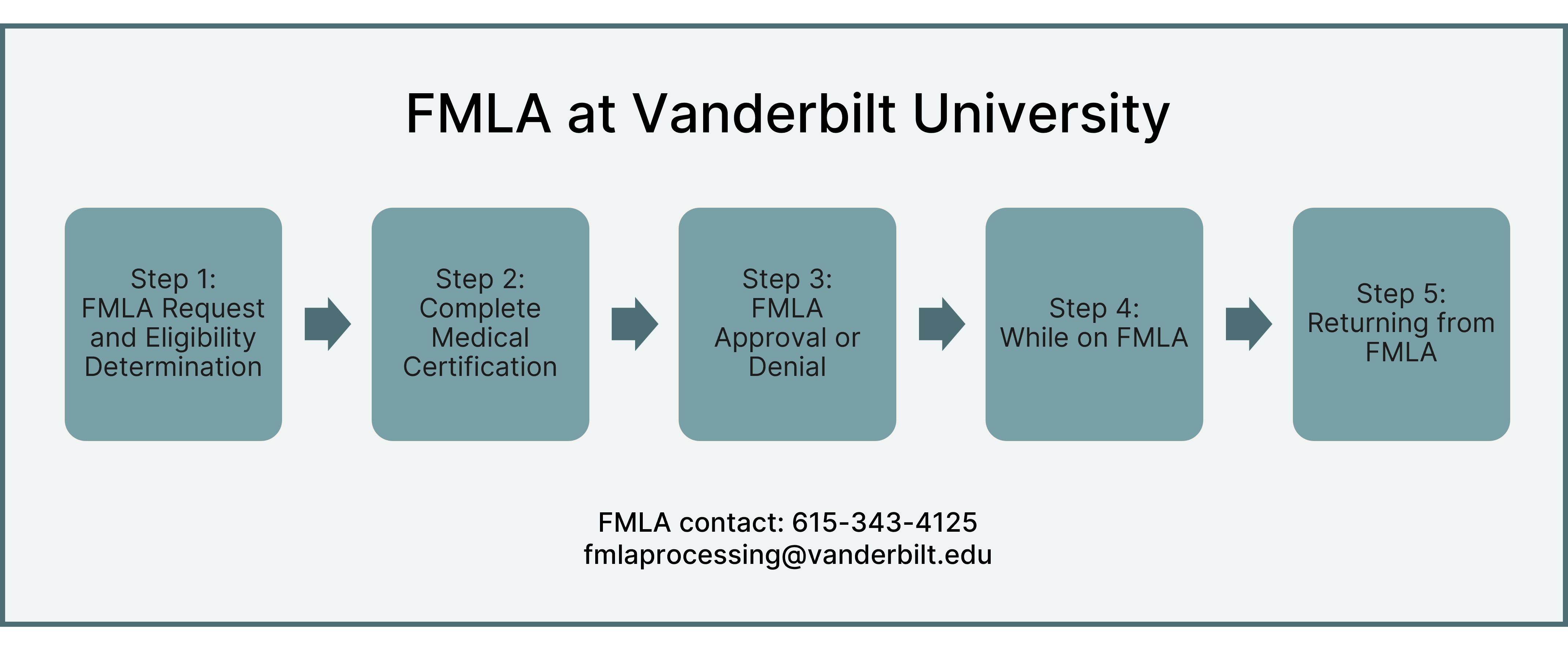- Paid Time Off (PTO)
- Family and Medical Leave Act (FMLA)
- Parental leave
- Short-term disability insurance
- Long-term disability insurance
FMLA Policy
FMLA Quick Links
- Leave Request Form (FMLA and Personal)
- Return to Work Form
- DOL Guide
- FMLA Quick Guide
- Parental Leave Calendar
- FMLA Job Aids (Hourly)
- FMLA Job Aids (Exempt)
Questions? Need Help?

What Is FMLA?
Vanderbilt University recognizes that during an employee’s career, circumstances may arise which require prolonged or intermittent absence from work due to medical reasons. Vanderbilt University provides its employees the family and medical leave guaranteed to eligible employees by federal and state law.
The Family and Medical Leave Act (FMLA) is a federal law that provides employees the right to take a leave of absence for personal or family medical reasons and leave for military families while maintaining job protection.
An employee may start the application process for Family Medical Leave by completing the online Leave Request Form (FMLA and Personal). In the event an employee is not eligible for FMLA, this same form will start the application process for a Personal Leave.
Who Is My FMLA Contact?
FMLA Processing
Note: If you are a VUMC employee, please contact the VUMC FMLA team at 615-322-7441.